It seems like every week, we’re hearing about another Pet Treat Recall. What’s really scary is that even the better brands you may be using have been the topic of a lot of bad press lately. We hear about it in the pet chat forums, Facebook, and even on TV. Major Companies have been recalling their products because of Salmonella, E Coli, and even Toxic Ingredients imported from overseas. Our pets are relying on our wisdom to make them safe and yet most products on the market make me feel like the ones we love -could fall victim to the next spin of the “Recall Roulette Wheel”. The good news is that there are two things you can do to ensure that your pets enjoy their snacks and stay healthy all the time.
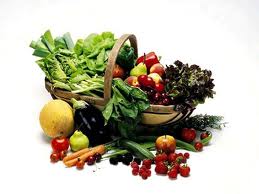
For nearly thirty years I have been teaching people how to make their own healthy treats at home, using high quality, wholesome, fresh ingredients for optimal health. “If I wouldn’t eat it… why would I ever give it to my pets?”. Everything I recommend is what you’d probably find in your own kitchen already and healthy choices for the two legged members of your family. Why would you want anything less?
Most people are under the assumption that the treats or foods they give their pets need to actually have a label on it that says its “formulated” for pets. Some pet owners believe that their dogs need to have a snack that’s shaped as a bone, in order for them to enjoy it. It’s time to change the way you think and start introducing whole, fresh, natural foods to your dogs and cats that are up to the same kind of standards for you’d want for your own human food needs. Regardless of the shape, your pets will enjoy all the choices on my list of quick and healthy treats that you can make yourself. (See the bottom of this post).
For years, I’ve been warning people about commercial Jerky Treats. These products have always unnerved me because they all contain such high amounts of salt (often used as a preservative), and other indiscernible flavor enhancers, which could have a direct correlation to kidney disease, rashes, digestive disorders and other ailments. Jerky treats from China have come under a lot of scrutiny in the news lately, but 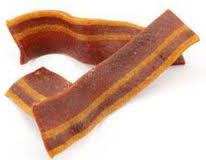 sadly the FDA has not pulled them from the shelves of stores yet. There have been warnings issued to the public, but no real action has been taken and literally thousands of animals have become sickened and hundreds have died! Dehydrated Sweet Potato pet treats have also been known to sicken many pets and those should be avoided at all cost. I wouldn’t blindly trust a pet product maker to provide quality ingredients to my pets, when so many companies are sourcing their ingredients outside the U.S. and don’t actually have to divulge what’s “really” in those snacks, because they only need to list what they put in their products at the time of packaging. So many of the treats you believe are healthy might just be masking ingredients that could be making your pets sick. (Or have a long term deleterious effect on them).
sadly the FDA has not pulled them from the shelves of stores yet. There have been warnings issued to the public, but no real action has been taken and literally thousands of animals have become sickened and hundreds have died! Dehydrated Sweet Potato pet treats have also been known to sicken many pets and those should be avoided at all cost. I wouldn’t blindly trust a pet product maker to provide quality ingredients to my pets, when so many companies are sourcing their ingredients outside the U.S. and don’t actually have to divulge what’s “really” in those snacks, because they only need to list what they put in their products at the time of packaging. So many of the treats you believe are healthy might just be masking ingredients that could be making your pets sick. (Or have a long term deleterious effect on them).
We already know that there’s a huge difference in what is allowed into human foods and snacks, as opposed to what’s allowed in typical pet treats. I would never give my pets any meats that were not Grade A and USDA approved for humans to eat. Pet Product Plants on the other hand are 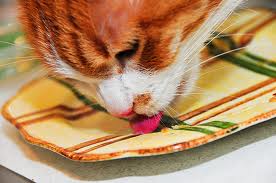 permitted to bring in just about anything they want, without scrutiny of any governing body and sanitary manufacturing practices are non-existent. The truth is that no one is monitoring the pet feed makers and all kinds of unscrupulous ingredients are becoming commingled at the pet food processing plants. The bonafide problem is that these pet feed companies and their suppliers have no real regulatory board to answer to and their manufacturing, packaging and delivery practices typically go unchallenged, and unnoticed. The main difference between a healthy, human food plant and a pet feed plant (by government definitions) rests in the rules that a USDA Facility must subscribe to Good Manufacturing Process (GMP). For all animal feeds (made in a pet food facility), there are no mandatory good manufacturing processes in place.
permitted to bring in just about anything they want, without scrutiny of any governing body and sanitary manufacturing practices are non-existent. The truth is that no one is monitoring the pet feed makers and all kinds of unscrupulous ingredients are becoming commingled at the pet food processing plants. The bonafide problem is that these pet feed companies and their suppliers have no real regulatory board to answer to and their manufacturing, packaging and delivery practices typically go unchallenged, and unnoticed. The main difference between a healthy, human food plant and a pet feed plant (by government definitions) rests in the rules that a USDA Facility must subscribe to Good Manufacturing Process (GMP). For all animal feeds (made in a pet food facility), there are no mandatory good manufacturing processes in place.
- Pet Food Makers are allowed to procure and use the following ingredients because of their inexpensive and economical value:
1. 4-D Meats, which mean animals that arrive at the slaughterhouse; Dead, Diseased, Dying or Disabled.
2. Meat meal, chicken meal, fish meal. These are the ground up and non-specific leftovers from whatever was rejected for human consumption, such as beaks, feet, hooves, hair, eyeballs and connective tissue.
3. Road kill and even the remains of euthanized animals from hospitals or shelters.
USDA Accepted or USDA Rejected? All meats are USDA “inspected”. To be allowed in a HUMAN food facility it has to be USDA ACCEPTED. What goes into a PET FOOD plant is USDA REJECTED.
If I couldn’t eat it, or use it on my own body – My pets would NEVER get it. Make sure you feed your pets the safest snacks on the planet!
Do the right thing for the ones you love. Keep them safe by making some easy, smart snacks in your own kitchen, Browse my recipes section here or get your own copy of my book to help keep your pets safe always. Love them with wisdom!

Make Every Day A Holiday with Healthier Pets!
Xox
Andi Brown & “Doc” Holiday


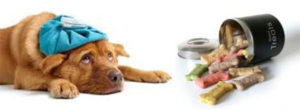
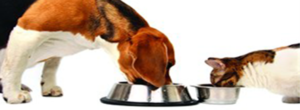

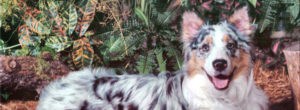
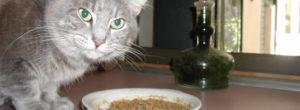
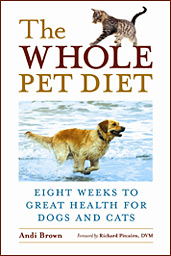
9 Responses
Do you know anything about Acana dog foods? Produced in Canada but “supposed” to be totally healthy. I use the Wild Prairie Totally Grain free and stopped using Canidae once I read your article about selenium sulfate.
Hi, Chicken Meal is the first ingredient and they seem to only make a dry food – which I can never recommend. Sorry.. xox
AUG 11 2013
WHAT DO U THINK OF GRAIN FREE DRY AND WET DOG FOOD BY EVANGER?
MY PAPILLON HAD 15 TEETH EXTRACTED WHEN 4 YEARS OLD CAN U RECOMMEND A DENTAL CHEW TREAT
NOT TOO HARD?
I can’t recommend ANY commercial pet foods. I can only suggest home made. Will your dog eat/chew on carrots? xoxo
Aug 11 2013
Can u recommend a good vitamin supplement for an 8 year old Papillon?
Deborah
Yes, I can. And I do…. please get a copy of my book for all the particulars.. xoxo
Hi Andi where can I buy all your products? Antlers, pre made Doc Stew, treats etc?
Hi Emily, the antlers, the oils and the pink powder are available this week on my website. After this week, I will be closing the store and heading back into retirement! I will always be available for consultations, but will not be selling products. You can still buy them https://www.thewholepetdiet.com/holiday-pets/
xox
Thank you for the info!